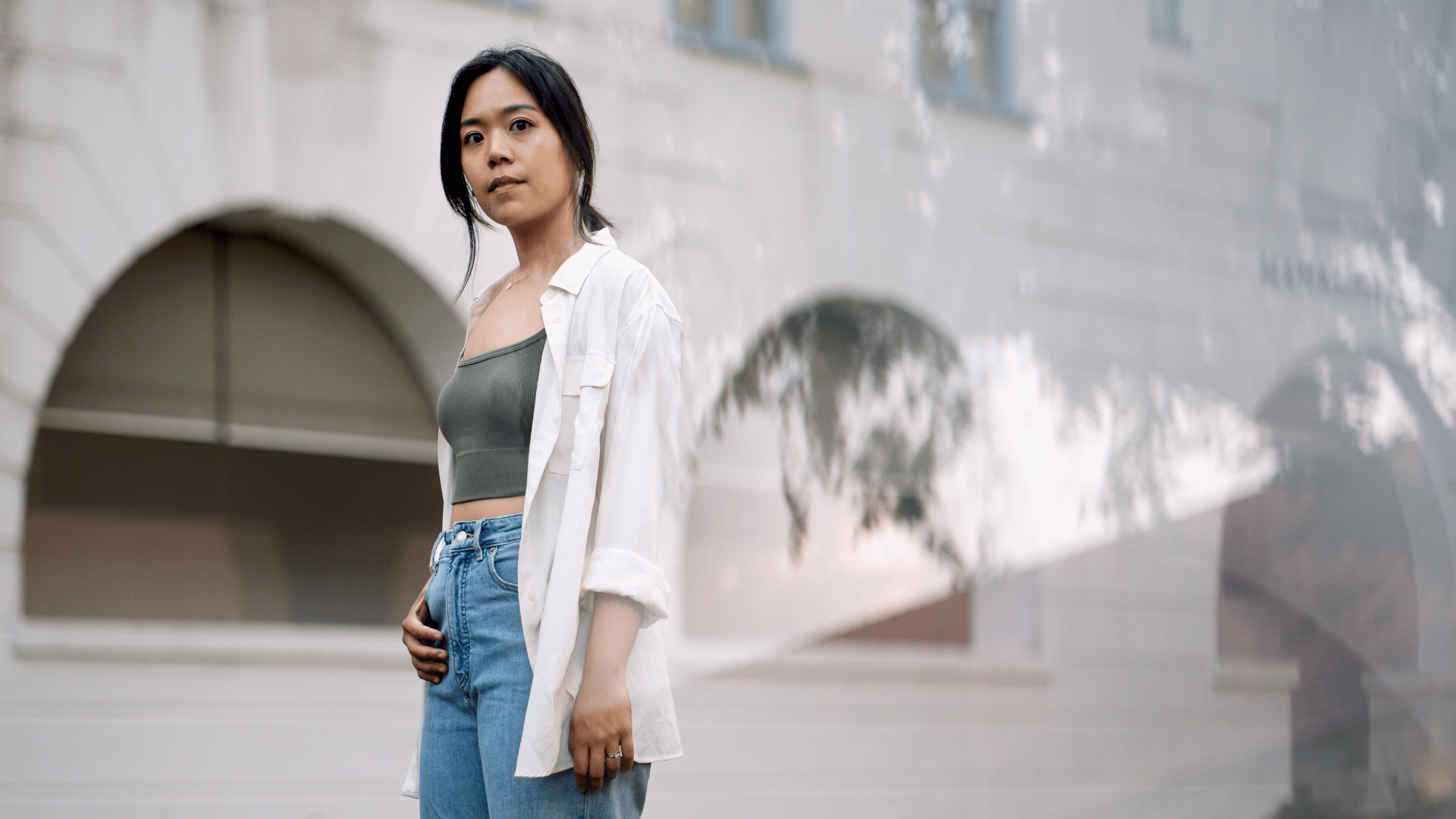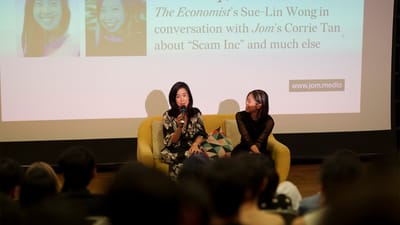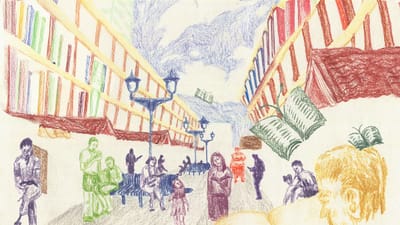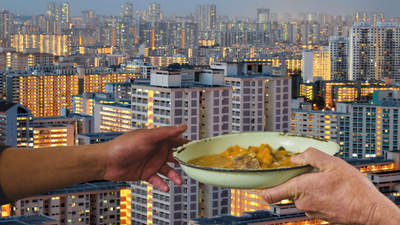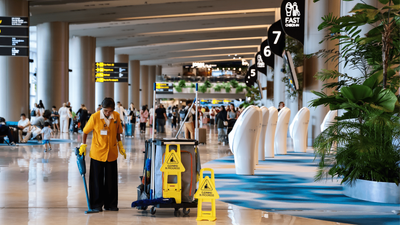“And so, this is about the choir and about those who might be bold enough to join it before another wretched year arrives to erase another handful of us. This is, more than anything, about those still interested in singing.” —Hanif Abdurraqib, They Can’t Kill Us Until They Kill Us
Shortly after starting her PhD programme in comparative literature at Columbia University, Joanna Lee accepted an invitation to join her union, the Student Workers of Columbia (SWC). “I always had left-leaning politics and it was really clear: when you get to your PhD, you join a union, it wasn’t really a question for me because that’s what you do.”
She didn’t really participate at first. “Honestly, meetings were so boring. We’d vote on very dry, procedural things, things that didn’t matter to a lot of our workplace conditions.” But after a while, something just wasn’t sitting right. “The union reps kept telling us that ‘the threat of a strike was more important than the strike itself,’ which I didn’t agree with. Nothing is more powerful than a significant number of workers withdrawing their labour.” The more meetings she attended and the more she heard from her union reps, the more she understood that the union wasn’t particularly interested in pushing for its members’ rights—it was more concerned with appeasing the university.
Like many other academic institutions in the US, Columbia University has spent decades pushing staff wages down, shrinking benefits, and giving faculty members temporary contracts. Given that Columbia boasts one of the largest endowments and one of the highest tuition rates in the country, its actions constitute the funnelling of profits to those at the top through continued extraction from those at the bottom. Joanna’s early experience with SWC suggested that such unions were apathetic towards upending these dominant power structures.
And then the Covid-19 pandemic happened. “People started organising organically and stopped relying on the union. I got connected to people who were organising around campus health, campaigning for proper PPE [personal protective equipment] for all healthcare workers in the university hospital; the university was pulling people’s fellowships so I got involved in mutual aid too. Trump said something about changing people’s visa status so I organised around that too.” Conditions were becoming increasingly appalling and so these groups of organisers decided to go to their union representatives, the Bargaining Committee (BC), to discuss the possibility of a strike.
The BC declined. “When you have people who want to go on strike, you don’t shut it down!” Angry, tired and desperate for change, Joanna and the rest decided to ignore the BC. “That’s when I learnt the most important lesson of my organising work: you don’t need an official body to strike, you can just do it. If your strike will stop work, stop things from functioning, who cares if it’s official or non-official.” Workers went on strike—to hell with authorisation. Directly involved in reclaiming her university, her space, Joanna became a key organiser in a series of student worker strikes from 2020 to 2022. The last of these was one of the largest in the US at the time, with 3,000 picketing over 10 weeks. This resulted in a massive win for all Columbia graduate student workers.
How did a Singaporean PhD student in New York City end up playing a critical role in such a seminal instance of college labour activism? I was keen to talk to Joanna—to find out how she and the union won, to ask her about teaching and pedagogy, to learn from her for my own left education. Although left-leaning discourse and activism are starting to resurface in Singapore, there is still a history of demonising the left, and the current realities of ideological and institutional inertia to reckon with.
In 2020, about a year before I moved to London for a Masters of Arts at Goldsmiths, University of London, I came across a quote by Marxist geographer David Harvey, in Isabelle Lim’s essay in Mynah Magazine on Singapore’s eco-modernist approach to sustainability. Harvey, who is interested in how inequalities are created and reproduced in cosmopolitan and urban environments, beckoned us to think about our role in creating the kind of city we’d live to live in:
“The question of what kind of city we want cannot be divorced from the question of what kind of people we want to be, what kind of social relations we seek…The right to the city is, therefore, far more than a right of individual access to the resources that the city embodies: it is a right to change ourselves by changing the city more after our heart’s desire.”
During my year in London, I got involved in various activist groups and labour organising efforts, including: supporting our university’s staff union in striking against unjust wages and staff cuts; and joining an anti-raid organisation focused on protecting undocumented people from being harassed and intimidated by law-enforcement. In these spaces, I experienced first-hand people invested in changing themselves by changing the city around them, asking for more, asking for justice.
It was strange returning to Singapore in 2022. Even though I was mourning the loss of verve I had experienced being an activist in London, there were some things to be cautiously optimistic about. A quiet, tentative confidence was murmuring in the civil society air: the ruling party had suffered one of its worst electoral performances since independence; the proposed rise in the Goods and Services Tax had agitated many, and frustrated workers were banding together in the form of groups like Workers Make Possible and SG Riders; and S377A had finally been repealed. Abroad, Singaporeans were getting involved in campus activism and taking up leadership positions in their university unions. We weren’t just imagining what was possible, we were building it, “changing the city more after our heart’s desire.” Singapore seemed to be slowly coming back to us.
The People’s Action Party (PAP) first attained victory with the help of trade unions and workers’ associations. In order to develop a mass movement that could overthrow British rule, the more Anglicised party members relied on charismatic union leaders such as Lim Chin Siong, Devan Nair and James Puthucheary to gain the workers’ trust. Labour activism was significant to the PAP’s eventual victory, with strikes and assemblies used to agitate, energise and galvanise the masses.
